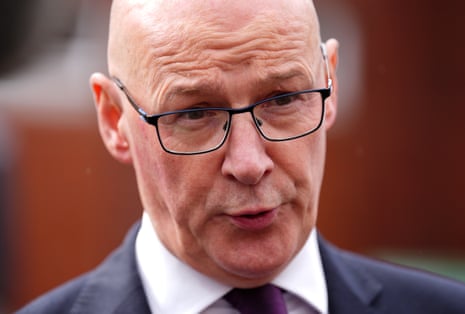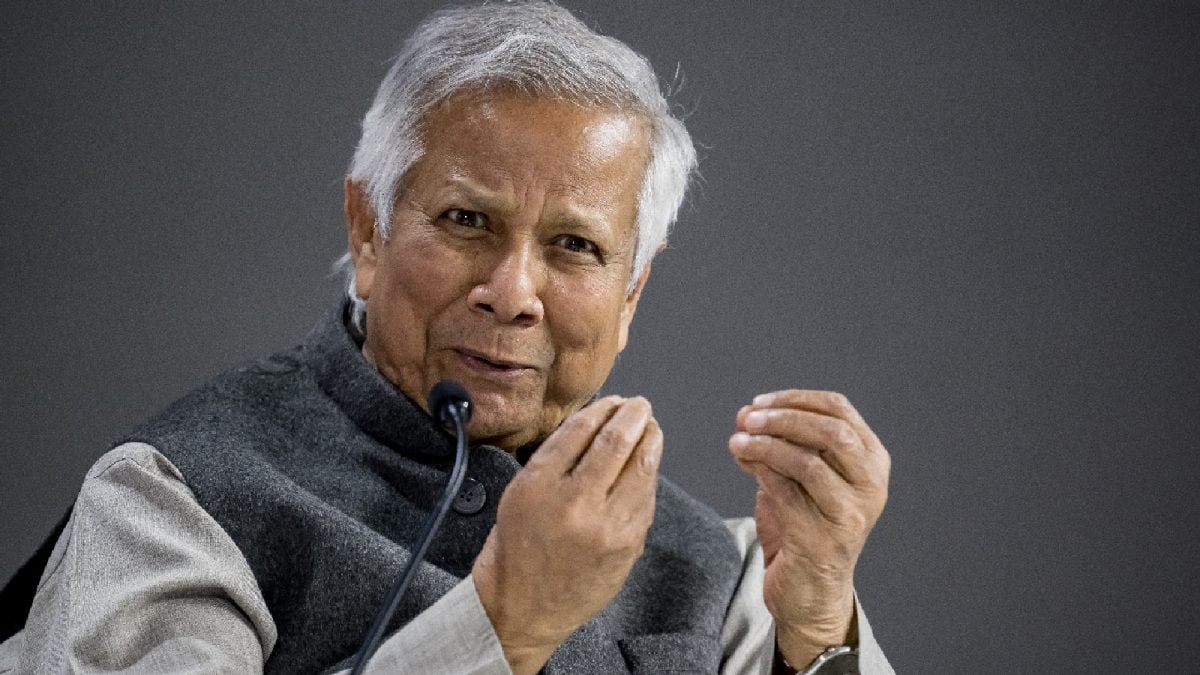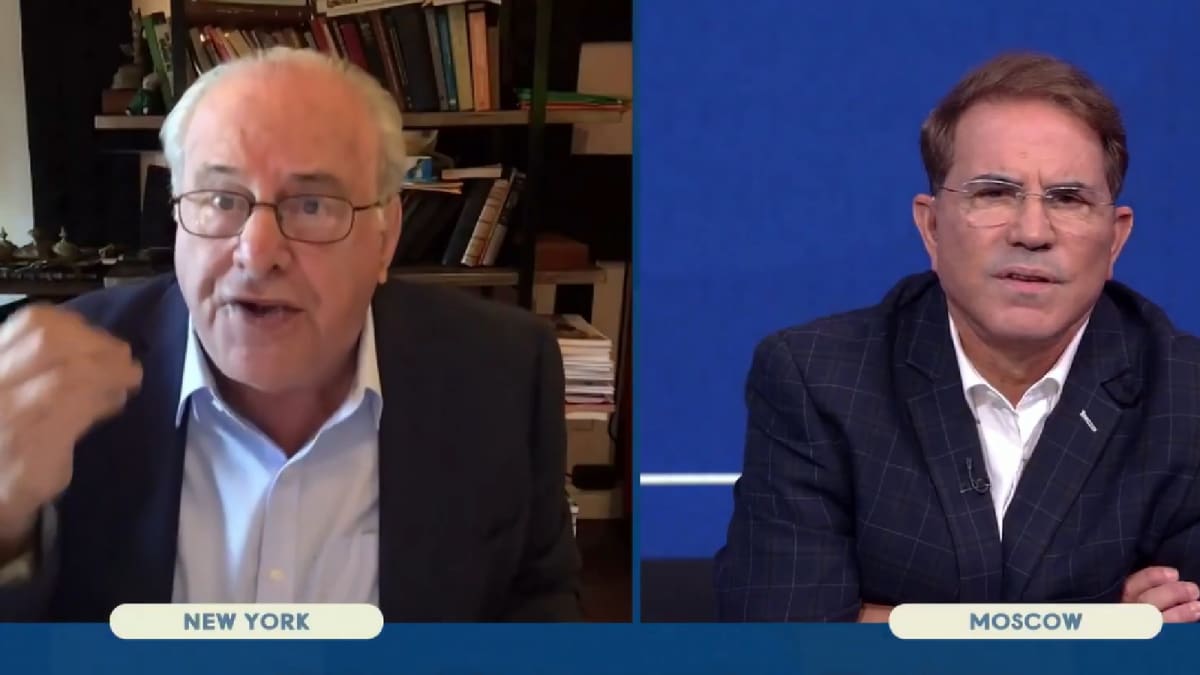Home Office says injunction against Epping hotel would have ‘serious impact’ on UK’s ability to house asylum seekers
Becca Jones, director of asylum support in the Home Office, said it would be “significant” to lose 152 bedspaces from the Bell hotel in Epping, Essex.
The PA news agency reports that in a witness statement referenced in the court of appeal hearing on Thursday, Jones said there were 103,684 accommodated asylum-seekers as of 31 March, higher than in 2024. She said:
In this context, and at this time, the loss of 152 bedspaces is significant when considering the Home Office’s legal duty.
The availability of the hotel is also important in enabling the secretary of state to meet her duty to accommodate future asylum seekers going forward, in circumstances where the pressure on available properties is significant and increasing.
Jones continued in her witness statement that the interim injunction would risk “encouraging other local authorities” to seek similar injunctions. She said:
The Home Office is aware that there have been a series of protests in the local area about the use of the hotel, including some disorder in previous weeks. However, following appropriate police intervention, the situation is now understood to be one of managed, peaceful protest.
Jones continued:
The Home Office understands that local residents have concerns about the use of the hotel, which have been heard. However, those concerns must be viewed in the context of demands on the accommodation estate.
She concluded:
Granting the interim injunction sought risks setting a precedent which would have a serious impact on the secretary of state’s ability to house vulnerable people, both by encouraging other local authorities to seek such interim injunctions pending the outcome of substantive planning law complaints and those who seek to target asylum accommodation in acts of public disorder.
Key events Show key events only Please turn on JavaScript to use this feature
Three senior judges will rule on whether to overturn a temporary
injunction which is set to block asylum seekers from being housed at the
Bell Hotel in Epping, Essex, at 2pm on Friday.
The Home Office and Somani Hotels, which owns the site, are
attempting to challenge a High Court judge’s decision last week to issue
an interim injunction to Epping Forest District Council that will stop
dozens of asylum seekers from being housed at the Bell Hotel beyond
12 September.
The government is also seeking to appeal against Justice Eyre’s
decision not to allow it to intervene in the case, while the council
opposes the appeal bids, PA reports.
At the end of a hearing on Thursday, Lord Justice Bean, sitting with
Lady Justice Nicola Davies and Lord Justice Cobb, said that they would
hand down their judgement on Friday afternoon.
He said: “Because of the great urgency of this matter, we will aim to give judgement at 2pm tomorrow.”
He continued: “If it proves impractical for us to meet the deadline, we will let people know in advance.”
Concluding his submissions on behalf of the Home Office, Edward Brown KC said that Epping Forest district council has “effectively conceded” that the injunction “was in truth only ever about protests”.
He continued that the injunction had not stopped protests taking place around asylum seeker accommodation and was “simply the wrong tool for doing so”.
In his closing submissions, Piers Riley-Smith, for Somani Hotels, which owns the Bell hotel, said the injunction “robbed” the company of the “ability for dialogue” with the authority. He also said that there were “other and more appropriate” solutions to the council’s concerns.
Lord Justice Bean, sitting with Lady Justice Nicola Davies and Lord Justice Cobb, said they would leave the courtroom briefly. He said:
What we need to discuss is when we will be in a position to give a judgment.
In a joint statement with the foreign ministers of France and Germany, David Lammy said that Iran’s non-compliance with a 2015 agreement to limit its nuclear programme was “clear and deliberate”.
The statement said that Iran has exceeded limits on enriched uranium imposed by the deal, and restricted the ability of the Atomic Energy Agency (IAEA) to monitor its nuclear programme. It read:
Iran has no civilian justification for its high enriched uranium stockpile – now over nine significant quantities – which is also unaccounted for by the IAEA. Its nuclear programme therefore remains a clear threat to international peace and security.
Lammy said that the UK, alongside European allies, has “negotiated in good faith” with Iran since 2019, but they are now “left with no choice” but to reintroduce sanctions. He said:
Alongside my French and German counterparts, I have today written to the UN security council announcing that we have triggered the snapback mechanism which will end sanctions relief against Iran.
Iran’s nuclear programme remains a threat to global peace and security. Over the past six years, Iran has broken almost all limits in the JCPOA and its stockpile of enriched uranium is 45-times over the JCPOA limit.
Alongside our European allies, the UK has negotiated in good faith since 2019, when Iran began to disregard the nuclear deal. We supported a viable deal in 2022, which Iran rejected, and recently offered an extension to sanctions relief, subject to Iran meeting set conditions.
However, despite repeated warnings, Iran has made no substantive effort to meet the conditions of our extension offer and has consistently failed to provide credible assurances on the nature of its nuclear programme.
Whilst we have been left with no choice but to take this action, the ball remains in Iran’s court and I would welcome their return to the table with a serious offer.
UK, Germany and France say they have triggered UN sanctions on Iran

Patrick Wintour
The UK, France and Germany have formally notified the UN that they have triggered the restoration of sweeping UN sanctions against Iran, giving Tehran 30 days to make concessions on access to its nuclear sites, or face deeper worldwide economic isolation.
UK officials said the decision had not been taken lightly and there had been very intensive diplomacy to try to avert this step. The officials stressed there was still room for some last-ditch diplomacy before the sanctions “snapback” comes into force in 30 days’ time. The annual high-level UN general assembly in September is likely to see intensive diplomacy over how to handle Iran.
They added that Iran had been in significant non-compliance with the terms of the 2015 nuclear deal since 2019, saying Tehran had been given ample opportunity to make itself compliant, but had either been unwilling or politically unable to act.
The Atomic Energy Agency (IAEA) quit Iran after Israel bombed Iran’s key nuclear sites, and has been unable as yet to renegotiate a return to assess the state of those sites. Iran has allowed the IAEA inspectors to visit the Bushehr site where refuelling is due to occur.
The UK foreign secretary, David Lammy, informed the Iranian foreign minister, Abbas Araghchi, of the move by the three European countries in a call on Thursday morning and British officials are expecting a sharp Iranian reaction.
The effect of the snapback will convert many existing, largely US and European, sanctions into UN-wide sanctions requiring observance by Russia and China. Some sanctions on the Iranian arms industry that are not currently in force will be restored. In addition, the US, as a permanent member of the UN securitycouncil, will in future have a veto over the lifting of the UN sanctions, a power it currently does not have.
The first session of parliament will run until Spring 2026, the government has announced. The session, which began in July last year after Labour won the election, could run to nearly two years long as a result of the announcement.
Sessions of parliament usually last for around a year, but ministers are hoping to progress as many pieces of legislation into law before the current one ends.
Commons leader Lucy Powell said:
By any measure, this is a bumper first parliamentary session delivering on the government’s plan for change. No new incoming government has set out such an ambitious legislative programme in its first year, that delivers for working people.
We said we would tackle the cost-of-living crisis, put power and opportunity back into the hands of people and take on the vested interests holding us back – and that’s what we are doing. This autumn is going to be a busy term for parliamentarians.
Setting up GB Energy, stopping water bosses’ bonuses, new rights for workers and renters, public ownership of rail, better buses, protecting local football clubs, saving British steel, planning reform for new homes, new police powers to tackle antisocial behaviour and strengthening our borders are just some of the real change we’re delivering so far.
Robin Green, for Epping Forest district council, told the court of appeal that the authority had not previously taken enforcement action against Somani Hotels over the use of the Bell hotel in Epping to house asylum seekers because it had been “unproblematic”.
The hotel has housed single adult male asylum seekers since April 2025, and from October 2022 to April 2024. It had also accommodated asylum seekers from May 2020 to March 2021, but this year marked the first time the council had taken enforcement action when it issued legal proceedings earlier this month.
According to the PA news agency, Green told the court that enforcement action had not been taken before because previous periods of the hotel being used as asylum seeker accommodation were “tolerable”.
Green said:
A decision not to take enforcement action at one point in time does not mean it cannot take a different decision at a later point in time if circumstances change. On the evidence, circumstances had undoubtedly changed.
Chemical companies lobbying MPs not to ban Pfas
Chemical firms are lobbying MPs not to ban “forever chemicals” in the same way as proposed in the EU, using arguments disputed by scientists and described as “Big Tobacco playbook” tactics, it can be revealed.
Pfas, short for per- and polyfluoroalkyl substances and commonly known as forever chemicals owing to their persistence in the environment, are a family of about 10,000 chemicals, some of which have been linked to a wide range of serious illnesses, including certain cancers. They are used across multiple industries, from cosmetics to firefighting.
In May, MPs on the environmental audit committee (EAC) launched an inquiry into Pfas, with a call for evidence on the uses and risks of the substances, and options for how to regulate them.
Exclusive analysis by the Ends Report and the Guardian of the responses submitted to the parliamentary committee has revealed major chemical producers, from UK-based companies to large US corporations, urging parliamentarians that any incoming UK Pfas regulation should be more limited than that currently proposed in the EU, which targets the whole family of chemicals.
Specifically, many of the responses from chemicals firms analysed by the Ends Report call for a commonly used type of Pfas called fluoropolymers – used across a broad range of industries including domestic cookware production, such as non-stick frying pans, and pharmaceuticals – to be spared the same kind of regulation as other types of forever chemicals, on the basis that they are not as harmful.
The validity of this argument, being made on record to UK politicians for the first time, has been disputed by scientists, with one stating that the chemicals industry is “copying the Big Tobacco playbook”.
Reform MSP who defected from Tories should stand down, says Swinney
The Reform MSP who defected from the Tories this week should stand down, first minister John Swinney has said, reports the PA news agency.
Graham Simpson announced the move at a press conference alongside Reform UK leader Nigel Farage on Wednesday.
Speaking on Thursday, Swinney called on Simpson to quit Holyrood, while also hitting out at the “obnoxiousness” of his new party leader’s stance on immigration, which he said was “undermining our legitimate economic aspirations”.
The first minister pointed to a members’ bill proposed by Simpson which would create a recall mechanism for MSPs who have been jailed or suspended from Holyrood for more than 10 sitting days. Swinney said:
Graham Simpson is the author of a bill about recalling members of parliament when they do things that people disapprove of.
I think there’ll be Conservative voters in central Scotland who will be thinking ‘what is the guy I voted for doing now representing Farage?’
The hypocrisy of Graham Simpson is absolutely legendary on this – the author of the bill on recall now sits for a different political party, so that hypocrisy is just clearly visible.
Asked if Simpson should stand down, the first minister said: “Yes, I think he should.”

Simpson was elected to the central Scotland region in 2016 as a Conservative MSP and if he was to stand down, his former party would get to select his replacement.
The first minister also hit out at Reform’s stance on immigration after a new poll this week suggested the issue had moved into the top three most important to Scots. Swinney said:
I think it’s important that we have a reasoned debate about migration in our country.
Scotland currently today faces a problem, which is that we have a declining working-age population.
We need to have more people in Scotland working and contributing to our economy. I talk to sectors right across the country who are short of staff and need more staff to be recruited to deliver the services they want to deliver, so we need to attract more people to come to Scotland.
Yet the immigration debate that has been fuelled by the obnoxiousness of Nigel Farage is undermining our legitimate economic aspirations to boost our population and to grow our economy.
With Reform continuing to surge in the polls and Farage targeting the SNP, the first minister said he remains “very confident” Scots will be more interested in his party’s record in government over the past 18 years than Reform.
Simpson’s defection came 24 hours before former Labour councillor in Glasgow Audrey Dempsey announced she was joining Reform (see 11.14am BST).
Robin Green, appearing for Epping Forest district council at the court of appeal, said that the Home Office should not be involved in the case as it “came too late to the party”, reports the PA news agency.
He also said the council took a decision to issue injunction proceedings against Somani Hotels on 5 August, several days before it filed documents at the high court on 12 August.
Lord Justice Bean responded:
Why not send a letter before action [to Somani Hotels] saying ‘unless you cease this use immediately, we are going to issue high court proceedings?’
Green replied that “a letter was not sent, and perhaps a letter should have been sent”, but said that Mr Justice Eyre “was aware of all this” when he made his decision to issue the temporary injunction.
Davey calls on Blair to give evidence in parliament after White House Gaza meeting
Responding to Tony Blair’s meeting at the White House with the Trump administration discussing the war in Gaza, Liberal Democrat leader Ed Davey called on the former UK prime minister to give evidence in parliament about his discussions.

In a statement on Thursday, Davey said:
Tony Blair needs to come before parliament to give evidence about his discussions with the Trump administration about the ongoing war and humanitarian catastrophe in Gaza.
If he has special insight into Trump’s intentions, it’s only right that parliament and the government are made privy to this.
Trump has a unique power to help end this war, get the hostages out, and get the desperately needed aid in to relieve the horrendous human suffering in Gaza. We must leverage all the information and resources at our disposal to make him do the right thing.
Immigration minister dismisses Reform UK's immigration plans as 'gimmicks'
Immigration minister Seema Malhotra has dismissed Reform’s plans to tackle immigration numbers as “gimmicks” that have “unravelled on basic facts and figures”.
The MP for Feltham and Heston said that she would not comment on Nigel Farage’s proposed deal with Afghanistan’s Taliban or “individual countries”.
Speaking in Portsmouth, Malhotra told the PA news agency:
I’m not commenting on individual countries in this way.
What I will say is that we have a policy of returning people to their countries where they are safe or, as we’ve seen in the agreement with France, to safe third countries.
What’s also the case is that we’ve seen Reform’s plan unravel after just two days, and if that’s their specialist subject to see their plans unravel on the basic facts and figures, one has to ask the question about what other plans they might have.
Whether it’s for our NHS or any other areas of our public services, what we are committed to is taking the serious action that we need and not gimmicks.
To make sure that we are stepping up the action we’re taking to disrupt the activity of these evil criminal gangs to make sure that we are returning those with no right to be here – over 35,000 since the last election.
To make sure that we’re bringing in new powers for law enforcement and intelligence sharing with other countries through legislation we’re bringing forward in parliament that both the Tories and Reform have voted against, and to make sure that we are urgently speeding up the processing of asylum cases, a backlog that the last government left behind in a system that was utterly chaotic.
She continued:
Through these steps, I think what people will see is that we’re taking the action we need, and that we will see a closure to asylum hotels and to this evil criminal trade.
When asked if the government had alternative plans to hotels for housing asylum-seekers, Maholtra said:
What we are doing is making sure that we’re reducing the need for hotels. That’s the critical bit of this and we’ve got to do that by working with communities across the country, making sure that what we’re doing is processing asylum cases much more quickly, making sure that we’re returning those with no right to be here, and making sure that we are delivering on our commitment that we made in our manifesto to see a closure to all asylum hotels in this parliament.
We’ve already seen a drop from the 400 asylum hotels that we saw open at their peak under the previous government, and seeing that now almost halved to just over 200, this is really important that we continue the work that we’re doing to make sure that we see a closure of all asylum hotels in line with our manifesto commitment in this parliament. That’s what we’re determined to do.

When asked if the government was reliant on hotels, she said:
Well, we’re also reliant on making sure that we’re clearing the backlog, because the number of people in hotels is as a result of the asylum cases that are open.
What we need to do is to continue that step change that we’ve seen processing asylum cases much more quickly, making sure that we’re seeing those returns for people who have no right to be here as a result also of the returns agreements that we have been signing, whether that’s with Iraq, whether that’s with France. Whether that’s also in relation to the agreements and cooperation agreements we’ve got with other countries like Vietnam.
When we see the results of all of those actions, when we see the new powers that are going to be coming in as a result of new legislation that we have brought in to parliament to increase intelligence sharing, to make it an offence to even supply criminal gangs, we are going to be doing much more than the previous government.
We’re seeing the arrests step up of those involved in criminal gangs, and we’re seeing that this evil criminal trade is disrupted that we are seeing put lives at risk and undermine our border security.

 4 hours ago
4 hours ago


















